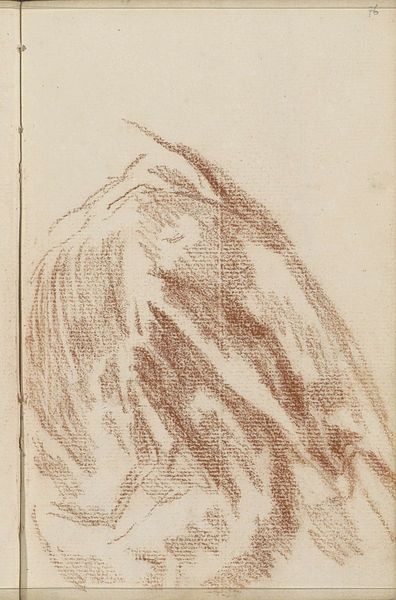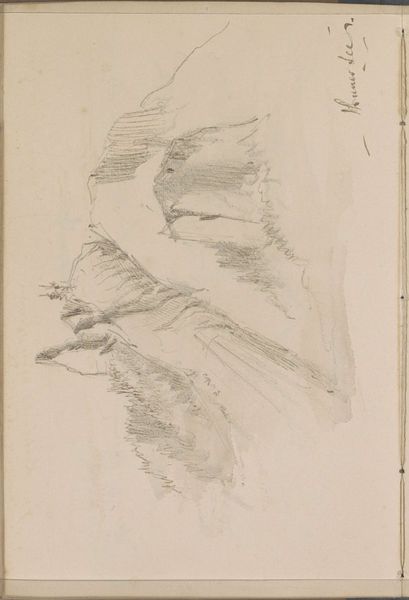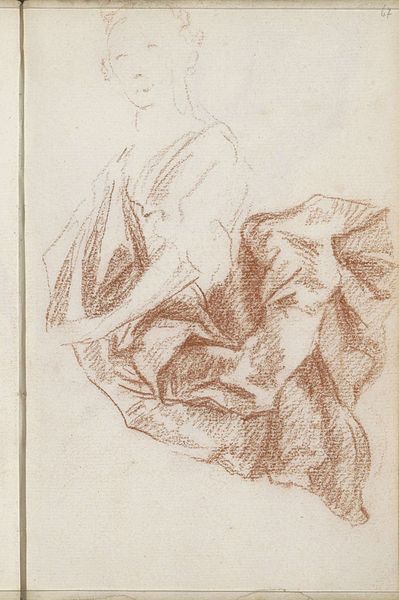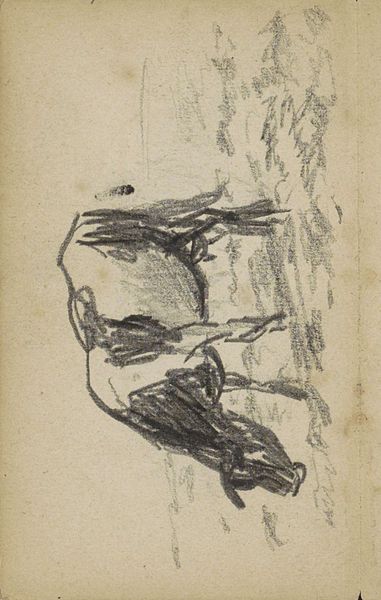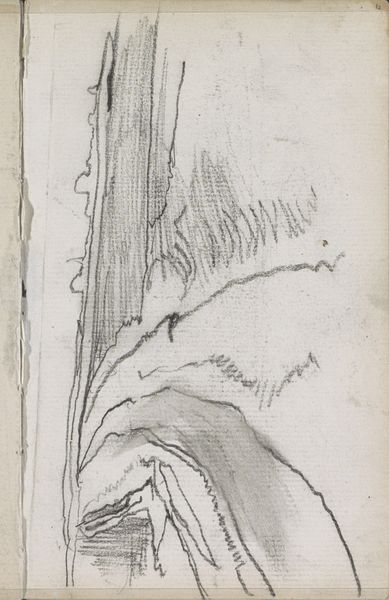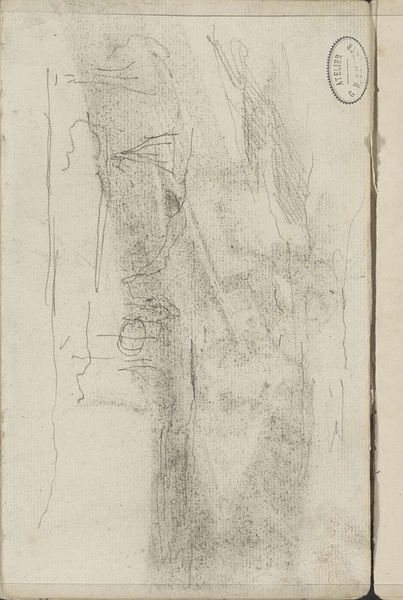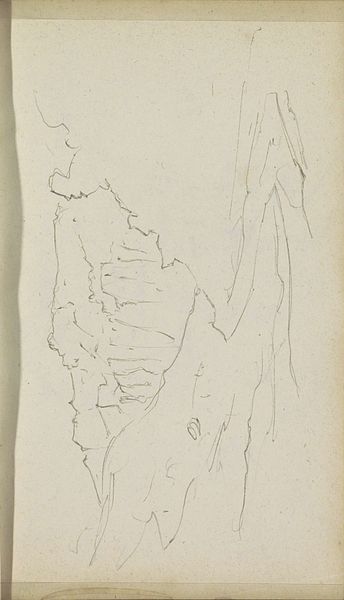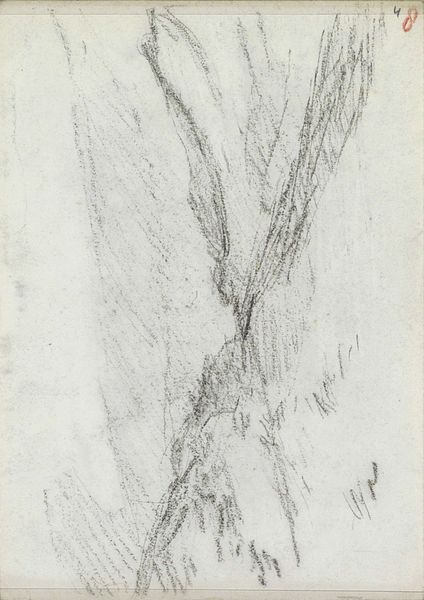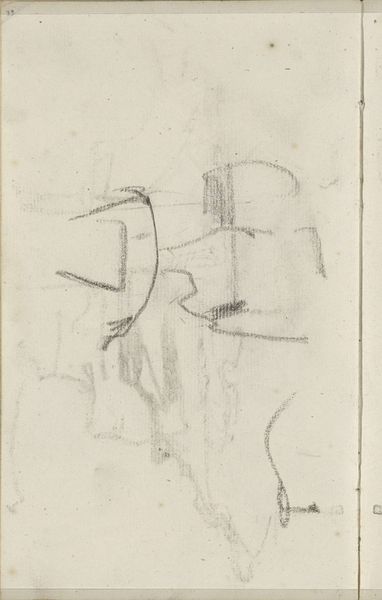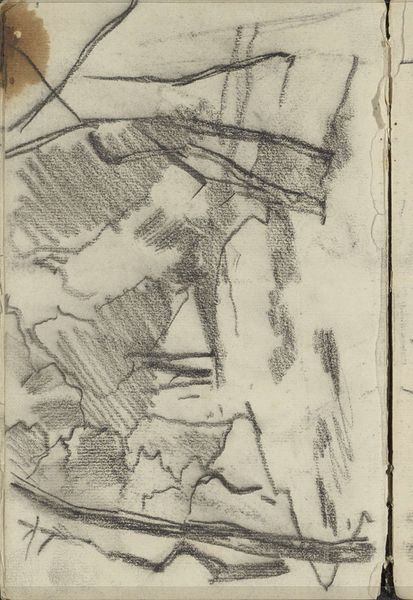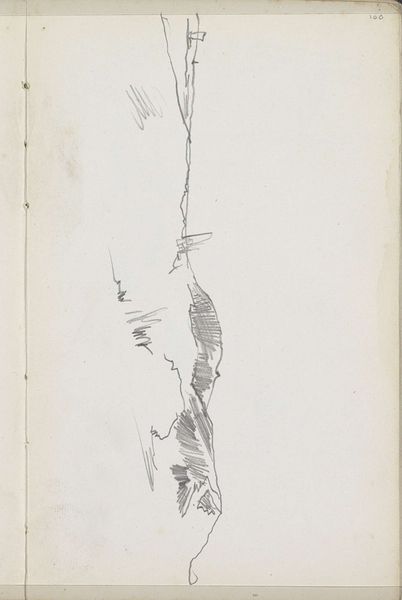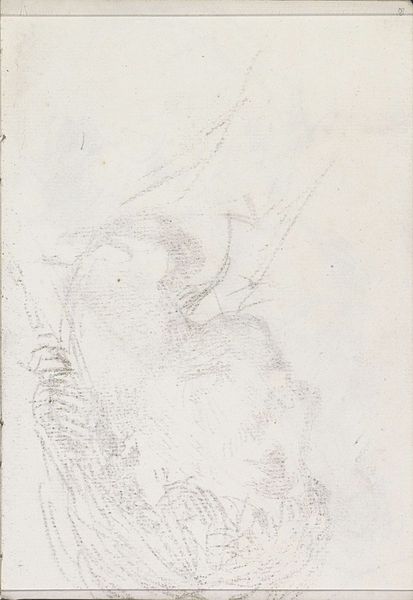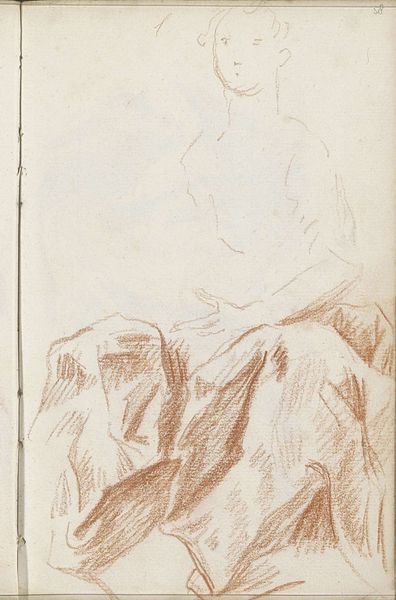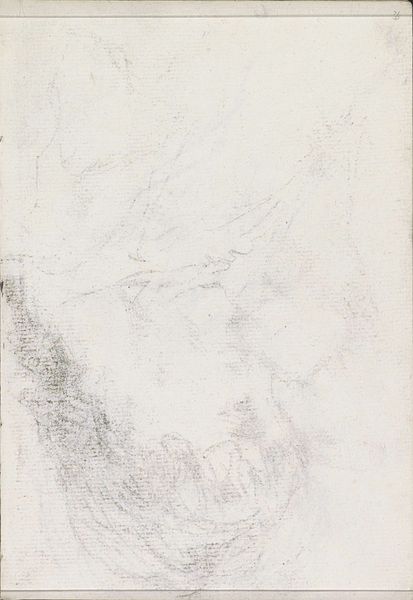
drawing, paper, pencil
#
drawing
#
baroque
#
pencil sketch
#
paper
#
form
#
personal sketchbook
#
pencil
#
line
#
sketchbook drawing
Copyright: Rijks Museum: Open Domain
Petrus Johannes van Reysschoot rendered this drawing of drapery with chalk in the eighteenth century. Drapery studies were a staple of academic artistic training in Europe at the time. Art academies, like the one in Bruges where van Reysschoot taught, saw the human form as the pinnacle of artistic achievement. Students spent years copying antique sculptures and drawing from life, yet mastery of representing fabrics was seen as essential. These exercises weren't just about technical skill; they reflected social hierarchies. To accurately depict a nobleman's velvet robe or a peasant's worn cloth was to understand and represent their place in society. Van Reysschoot's choice of a simple, unadorned fabric might be read as a subtle commentary on those rigid social structures. Researching the records of the Bruges academy and van Reysschoot's other works could shed light on his potential social critique. Art history helps us understand how seemingly simple drawings reflect broader cultural values and power dynamics.
Comments
No comments
Be the first to comment and join the conversation on the ultimate creative platform.
